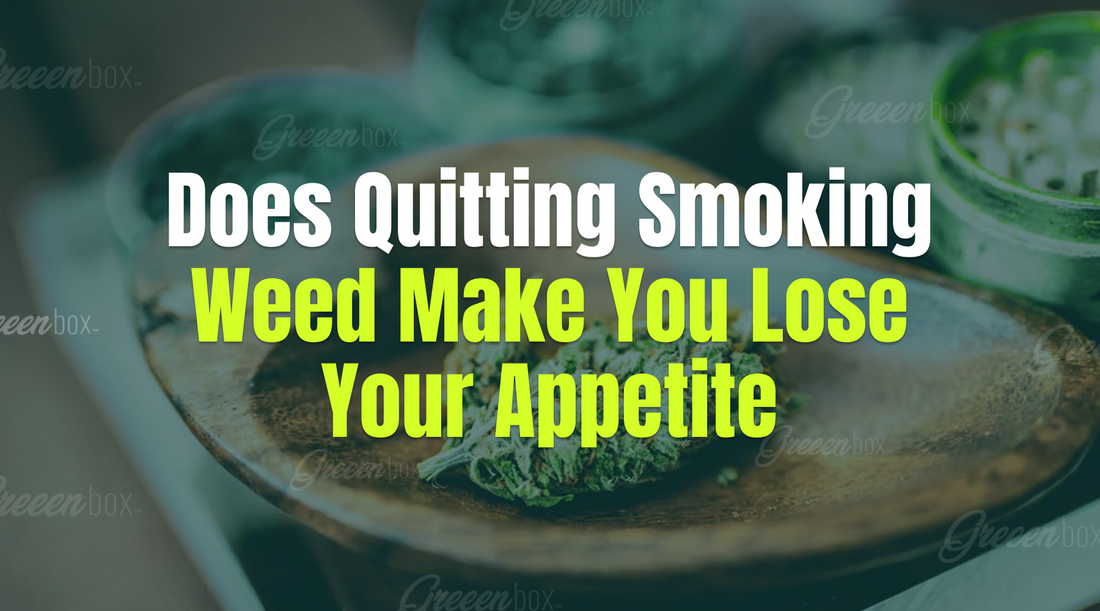When it comes to cannabis use, one of the most significant aspects that users experience is its effect on eating patterns. Deciding to stop using cannabis brings about various changes in the body, and understanding these changes is crucial for anyone considering this step. Many individuals find themselves concerned about how their relationship with food might shift, particularly since cannabis is well-known for its effects on appetite and eating habits.
The connection between cannabis and appetite is rooted in how the substance interacts with our body's natural systems. Regular cannabis use often influences eating patterns in distinctive ways, and when someone decides to stop, they frequently notice significant changes in their hunger levels and eating habits. These changes can affect daily routines, social situations, and overall well-being.
Understanding these patterns, along with proven strategies for managing them, can help create a smoother transition.

Flower of the Month Subscription
|

Lullaby Sleep Gummy Night Berry
|

GreeenBox Subscription
|
Are You Experiencing No Appetite When Not Smoking Weed?
When experiencing loss of appetite after stopping smoking weed, many individuals find themselves navigating unfamiliar territory. This common withdrawal symptom affects people differently, but the experience of having no appetite after quitting smoking weed can be particularly challenging during the first few days to weeks of cessation.
During this period, users often report several distinct experiences. Some find themselves physically hungry but unable to eat comfortably. Others experience a complete loss of appetite where they feel no desire to eat at all. Some report feeling nauseous at the mere thought of food, making the adjustment period even more challenging to manage.
The duration of these symptoms varies significantly among individuals. While some might experience appetite changes for just a few days, others may find these effects lasting several weeks. The timeline typically depends on various factors, including:
- How long you used cannabis
- How frequently you used it
- Your individual body chemistry
- Your daily routine and stress levels
- Your previous eating patterns
It's important to understand that quitting smoking weed and having no appetite is a temporary condition. Your body is adjusting to functioning without THC, which previously played a significant role in stimulating hunger. During regular cannabis use, THC actively influences your eating patterns, and now your body needs time to recalibrate its natural hunger signals.
Read more: What Happens To Your Body When You Stop Smoking Weed?
How Does Smoking Weed Affect Your Appetite?
The relationship between cannabis and appetite (whether it’s no appetite after stopping smoking weed or the other way around) is more complex than many people realize. While most users experience increased hunger when using cannabis, commonly known as "the munchies," some individuals may have different responses, particularly after long-term use. Understanding these effects can help explain why there’s a loss of appetite after stopping smoking weed can vary significantly from person to person.
The Science Behind Increased Appetite
THC, the primary psychoactive component in cannabis, interacts directly with your body's endocannabinoid system. This system plays a crucial role in regulating various bodily functions, including:
- Hunger signals
- Food satisfaction
- Taste perception
- Metabolic processes
- Eating behavior
When cannabis is consumed (monthly weed boxes or not), THC enhances the sensory perception of food, making flavors seem more intense and eating more pleasurable. This often leads to increased cravings, particularly for foods high in calories, fats, and sugars.
Long-Term Effects and Individual Variations
Interestingly, prolonged cannabis use can sometimes lead to unexpected changes in appetite patterns. Some users report experiencing an appetite suppressant after smoking weed effect, particularly after extended periods of regular use. This paradoxical response might occur due to:
- Changes in metabolic function
- Alterations in the body's natural hunger-signaling system
- Individual differences in how the body processes cannabinoids
- Psychological factors related to regular cannabis use
The varying responses to cannabis explain why some people experience more significant appetite changes than others when they stop using. Those who used cannabis primarily as an appetite stimulant might find the transition particularly challenging, while others might notice minimal changes in their eating patterns.
Physical Versus Psychological Effects
The impact of cannabis (it doesn’t matter if it’s from your Weed sub boxes or wherever) on appetite involves both physical and psychological components:
Physical Effects:
- Altered metabolism
- Changed taste perception
- Modified hunger hormone levels
- Affected digestive processes
Psychological Effects:
- Altered eating habits and routines
- Changed relationships with food
- Modified reward responses to eating
- Shifted emotional connections to meals
Understanding these various aspects helps explain why the experience of stopping cannabis use can vary significantly among different individuals. It also highlights why some people might need more support than others in managing their appetite changes during the cessation period.
Read more: Does Smoking Weed Cause Hair Loss?
How to Get Appetite Back After Quitting Smoking Weed
When dealing with quitting smoking weed and loss of appetite, having a structured approach to rebuilding your eating habits can make a significant difference. Here are comprehensive strategies that have helped many people manage their appetite changes successfully.
Creating a Sustainable Eating Routine
Start with smaller, manageable changes:
Structured Meal Planning- Set regular eating times
- Plan smaller, frequent meals
- Create a comfortable eating environment
- Keep healthy snacks easily accessible
- Begin with smaller servings
- Use appetizer-sized plates
- Gradually increase portions
- Listen to your body's signals
Physical Activity and Hydration
Quit smoking weed no appetite? Movement and proper hydration play crucial roles in natural appetite regulation:
Exercise Recommendations- Start with gentle activities like walking
- Gradually increase intensity
- Choose activities you enjoy
- Exercise during times when you typically feel most energetic
- Drink water consistently throughout the day
- Try herbal teas and natural beverages
- Consider nutrient-rich smoothies
- Monitor your hydration levels
Managing Stress and Anxiety
Stress management is crucial when dealing with appetite changes:
Relaxation Techniques- Practice deep breathing exercises
- Try meditation or mindfulness
- Engage in gentle yoga
- Maintain a regular sleep schedule
- Connect with understanding friends and family
- Join support groups
- Consider professional counseling
- Share your experience with others going through similar changes
Nutritional Approaches
Focus on maximizing nutrition when appetite is limited:
Nutrient-Dense Foods- Choose foods rich in essential nutrients
- Focus on quality over quantity
- Include a variety of food groups
- Consider nutritional supplements when necessary
- Experiment with different cooking methods
- Try various seasonings and herbs
- Prepare meals in advance
- Keep healthy convenience options available
Professional Support
Don't hesitate to seek professional guidance:
Healthcare Providers- Consult with your primary care physician
- Work with a registered dietitian
- Consider counseling services
- Monitor your progress regularly
- Track your food intake
- Monitor your weight
- Note energy levels
- Document any concerns
Read more: Does Smoking Weed Cause Depression?
Supporting Your Journey
As you navigate these changes, having the right support and resources can make a significant difference. Greeen Box offers specially curated products to help you maintain balance during this transition. Our monthly boxes provide carefully selected items designed to support your overall well-being.
Ready to explore a more balanced lifestyle? Sign up for Greeen Box today and receive hand-picked products delivered right to your door.



